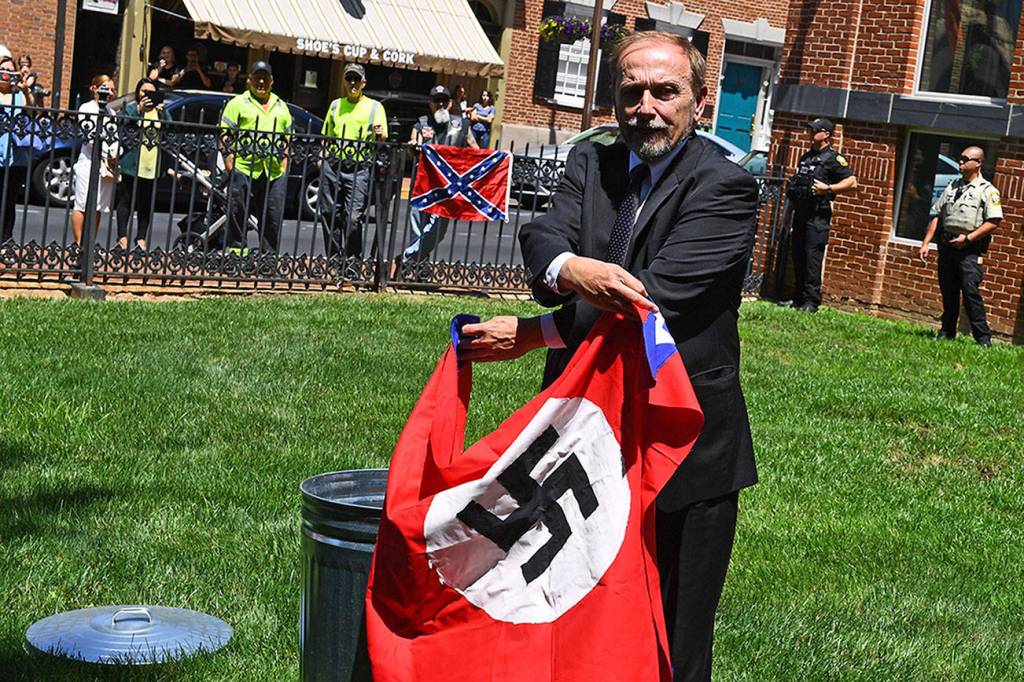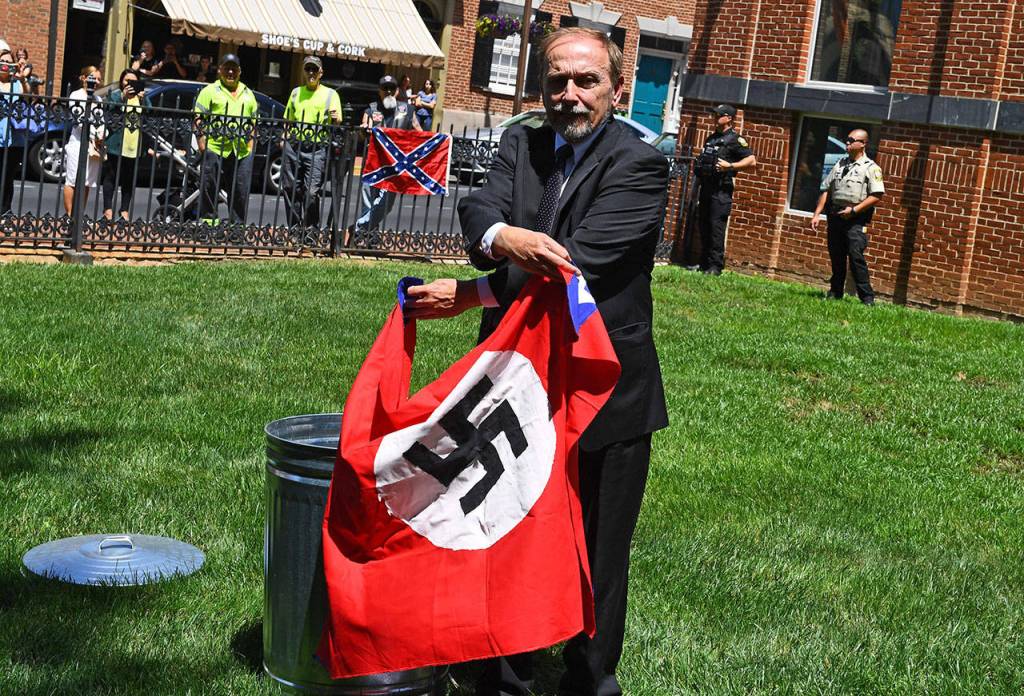Comment: At 100, WWII vet mourns hate’s hold in own country
Published 1:30 am Saturday, August 14, 2021


By Petula Dvorak / The Washington Post
William S. Keyes thought he had run out of things that would surprise him.
Keyes fought Nazis and helped liberate a death camp.
He stood outside stores that didn’t allow Black people like himself inside, while his fellow white soldiers — in the same uniform he was wearing — shopped.
Despite obstacles, he became a police officer, teacher and artist.
And he watched a Black man become the U.S. president.
But four years agothis week, he sat, gasping like most of us, surprised and horrified at what he saw in Charlottesville, Va.
“That was insane,” Keyes, now 100, said while recalling his reaction to watching the Unite the Right rally on the television in his Annapolis, Md., home, seeing images of the Nazi flag again; but this time in his own country. “Oh, my God, yeah. When you see something like that, you just can’t believe that. That’s hate. Hate. Hate. And people who are not informed.”
Those horrific days in Charlottesville in 2017, when the nation’s white-supremacist underbelly announced itself publicly and with bloodshed, may ultimately end up moving our nation in the right direction. The hatred was so pronounced, there was no longer denying that we had a problem.
“It was bound to happen,” Keyes said. “And it still can happen if we don’t take a broader look at hate.”
The hate is still with us. We can see that in Washington, D.C., where a 30-year-old Asian American D.C. resident and his parents were beaten by a man yelling “You are not Americans!” at them just last Saturday.
And we can see it in the report released this week about where the groups that marched in Charlottesville are today: They didn’t go away. And some of them came to the U.S. Capitol on Jan. 6, according to the Anti-Defamation League’s report, titled “Unite the Right: Four Years Later, Major Players Still Grappling with Fallout.”
“‘Unite the Right’ was the largest and most violent public assembly of white supremacists in decades,” the report said. “Groups that gathered in Charlottesville have undergone significant changes in the interim years; while some have faded away, others have gained membership and visibility.”
The visibility is the key.
The rally came in opposition to the proposed removal of the statue of Confederate Gen. Robert E. Lee in downtown Charlottesville; a proposal that may have otherwise faded into the City Council’s minutes or been treated as a local issue.
But that statue was removed this summer, partly thanks to the attention the racists drew to the controversy and the reckoning all of America faced. Before their rally, most folks who argued against removing Confederate statues did so in the name of history. But once we saw neo-Nazis worshiping the statue, its symbolism became clearer.
And with that rally, their repeated marches and the record amount of white-supremacist propaganda counted in 2020 by the ADL’s Center on Extremism, America has awakened to the smoldering issue of hate, which President Trump helped ignite with his wink-wink approval of all of it.
Thanks in part to the sight of Nazi flags on American soil that chilled most Americans, the insurrection of Jan. 6 and the danger it posed were put into the appropriate context. This was now a battle against fascism on American soil.
Police departments whose members were spotted in the Capitol on Jan. 6 launched investigations. The U.S. military, after some members were identified as part of the mob breaking into the Capitol, began creating protocols to identify extremists in its ranks.
In an April memo, Defense Secretary Lloyd Austin called for current troops to be questioned on current or past extremist affiliations, recruits to be better vetted and those retiring to be briefed on the way extremist groups may recruit them.
Because “any extremist behavior in the force can have an outsized impact,” Austin wrote.
Keyes sees a Nazi flag every day: It’s the one he and his fellow soldiers seized during the war and is now part of the war memento display in his home. They took it to silence it, to remove its motion in the breeze, to stop the salutes it had elicited.
And every day, it reminds him of what horrors extremism can lead to.
He doesn’t need reminding. But there are, unfortunately, Americans who do.
Petula Dvorak is a columnist for The Post’s local team who writes about homeless shelters, gun control, high heels, high school choirs, the politics of parenting, jails, abortion clinics, mayors, modern families, strip clubs and gas prices, among other things. Follow her on Twitter @petulad.




